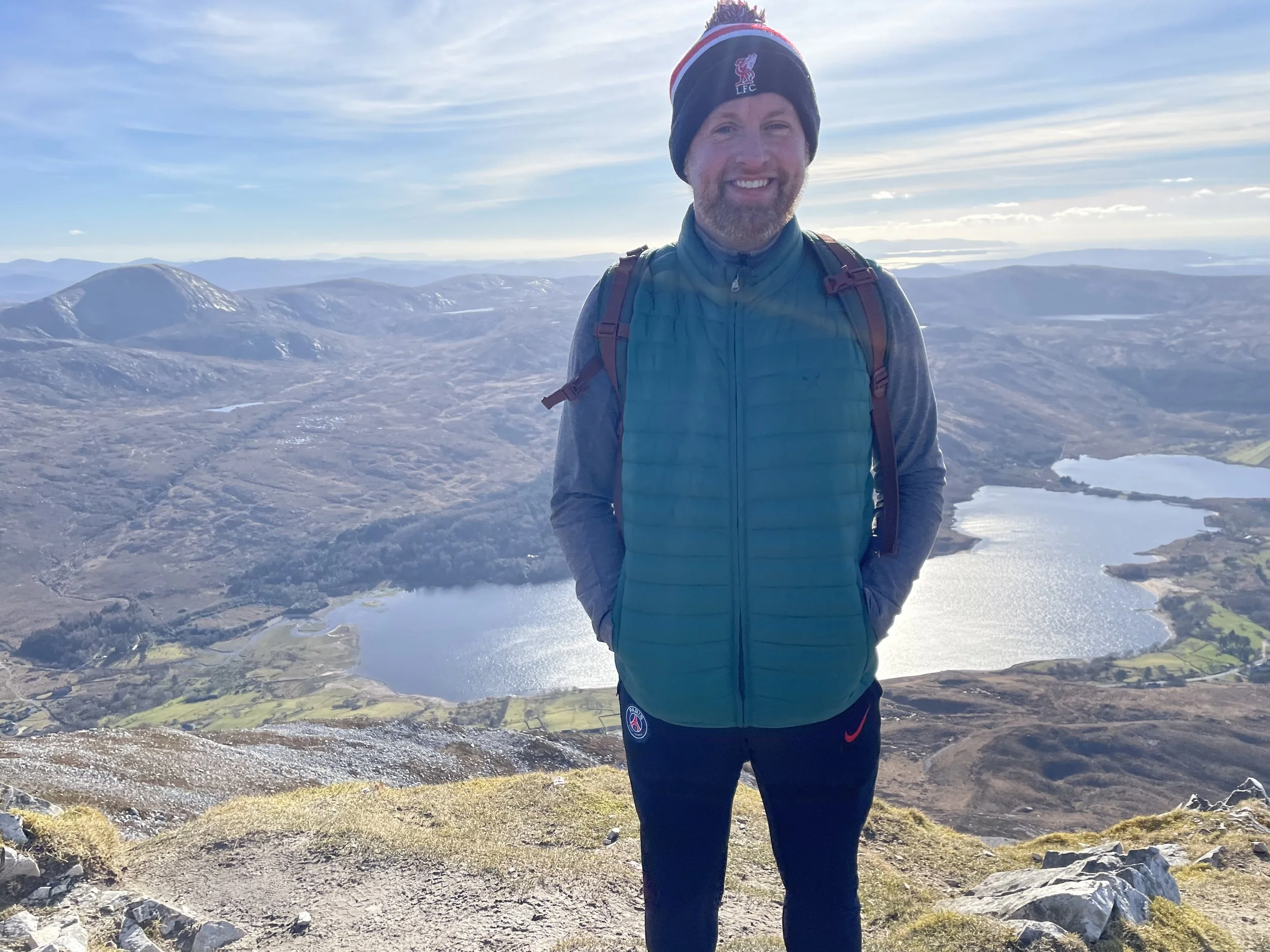Steafan Deery: Leadership Behaviours, Effective Coaching and Group Dynamics in Sport
Steafan Deery is an Assistant Professor in Sports Pedagogy at DCU.
Background:
Following my undergraduate degree in Sport Studies at Ulster University, I initially worked for Tyrone County Board as a Gaelic Games Development Officer, in primary and post primary schools across the county, alongside creating appropriate youth structures in clubs through coach mentoring.
Following this role, I spent a decade working for the Irish Football Association (IFA) as a PE Specialist to develop the competence and confidence of primary teachers in their PE delivery alongside enabling children to be lifelong participants in sport and physical activity. Significant time in this position focussed on talent development coaching regional and national underage squads.
During this period, I developed a huge interest in sport psychology and viewed it as the undiscovered pillar in comparison to the technical, tactical and physical elements of coaching. Returning to Ulster University, I completed a Masters and developed close links with the staff, sharing my research interests around effective leadership and coaching in sport. I was fortunate to receive a Studentship to complete a PhD in this area a number of years later.
In recent years, I have combined research with lecturing at Ulster University and currently lecturing at DCU on the PE teacher training degrees, alongside consultation work for Sport Ireland and Student Sport Ireland on projects as well as maintaining my passion for coaching.
Research Project:
Although there is an increasingly accepted view of the coach as a performer in their own right, research has just recently begun to highlight coaches as hugely influential actors in shaping, creating, and developing athletes’ experiences to achieve desirable outcomes in sport.
For my own development as a coach, I felt there remained opportunities in the literature to examine what differentiates effective coaches from ineffective coaches and how they do it. Inspired by experts in the field such as Ken Hodge’s work on the New Zealand All Blacks, and Cliff Mallett’s and Sergio Lara-Bercial’s work on serial winning coaches, I took a deep dive into leadership theories and specifically transformational leadership (TFL) and social identity leadership (SIL). These two theories aligned with my personal views on effective coaching, so I conducted a systematic review to examine both theories and associated outcomes in sport. Following PRISMA guidelines, 60 qualitative, quantitative and mixed methods studies were included.
Results highlighted that leaders who display SIL and TFL behaviours, develop their athletes and/or fellow team members psychosocial skills, cared deeply about athlete well-being, positively affected group dynamics and performance, and identified an optimal leadership profile to be adaptable and empowering to the needs of individual athletes. Finally, results reported for effective team identification and functioning, leadership should be shared amongst coaches and athlete leaders.
My second, qualitative study, analysed the successful leadership approaches of effective coaches in elite senior inter-county hurling and football in GAA. In-depth semi-structured interviews conducted through a novel triad perspective examining perceptions of the head coach (manager), a backroom team coach, and an athlete senior leader from 3 hurling and 3 gaelic football teams. Together, the head coaches won 24 All Ireland Championships during their tenure between them. This study provided a unique insight into a diverse sample which had yet to be explored in the literature. Following a thematic analysis, results reported the commonalities which successful leaders excelled at in coaching high-performance athletes. Leaders were effective in building and maintaining holistic relationships with their backroom team and athletes, and led in the development of team cultures through their vision, values and behaviours. Findings also documented how coaches successfully coordinated team strategy through developing a motivational climate promoting autonomy, shared leadership and feedback. Finally, leaders also shared traits in their narrative identities into coaching and becoming leaders, which provide a framework for other coaches to employ or consider refinements in their own coaching practice.
My final quantitative study currently ongoing examines the relationship between leadership behaviours, effective coaching, and team cohesion within Gaelic Games. In this study, managers and players, across senior club and intercounty levels for both male and female teams to find out a) what behaviours are most frequently used from two leadership frameworks (TFL and SIL), and b) if these leadership behaviours have any relationship with coaching effectiveness and team cohesion.
Take-Homes and Applications:
From the research findings, we hope to raise awareness on the characteristics of successful leadership behaviours within elite senior intercounty Gaelic Games which adds a new dimension to the literature academically, but equally so, to develop coach education especially within Gaelic Games in Ireland and to the Irish diaspora abroad. We hope that through our research, which is a first to examine leadership behaviours, coach effectiveness and group dynamics in Gaelic Games, that it opens up possibilities for others alongside myself to further explore these themes in ethnographic or intervention studies. Although extremely challenging due to the lack of female managers within Gaelic Games, we also hope to reduce the gender gap through highlighting effective female coaching behaviours if we are able to recruit more female coaches for our final study.
Author Bio:
Steafan Deery is an Assistant Professor in Sports Pedagogy at DCU.
Social Media Handles: Twitter-@SteafanDeery; LinkedIn-Steafan Deery

